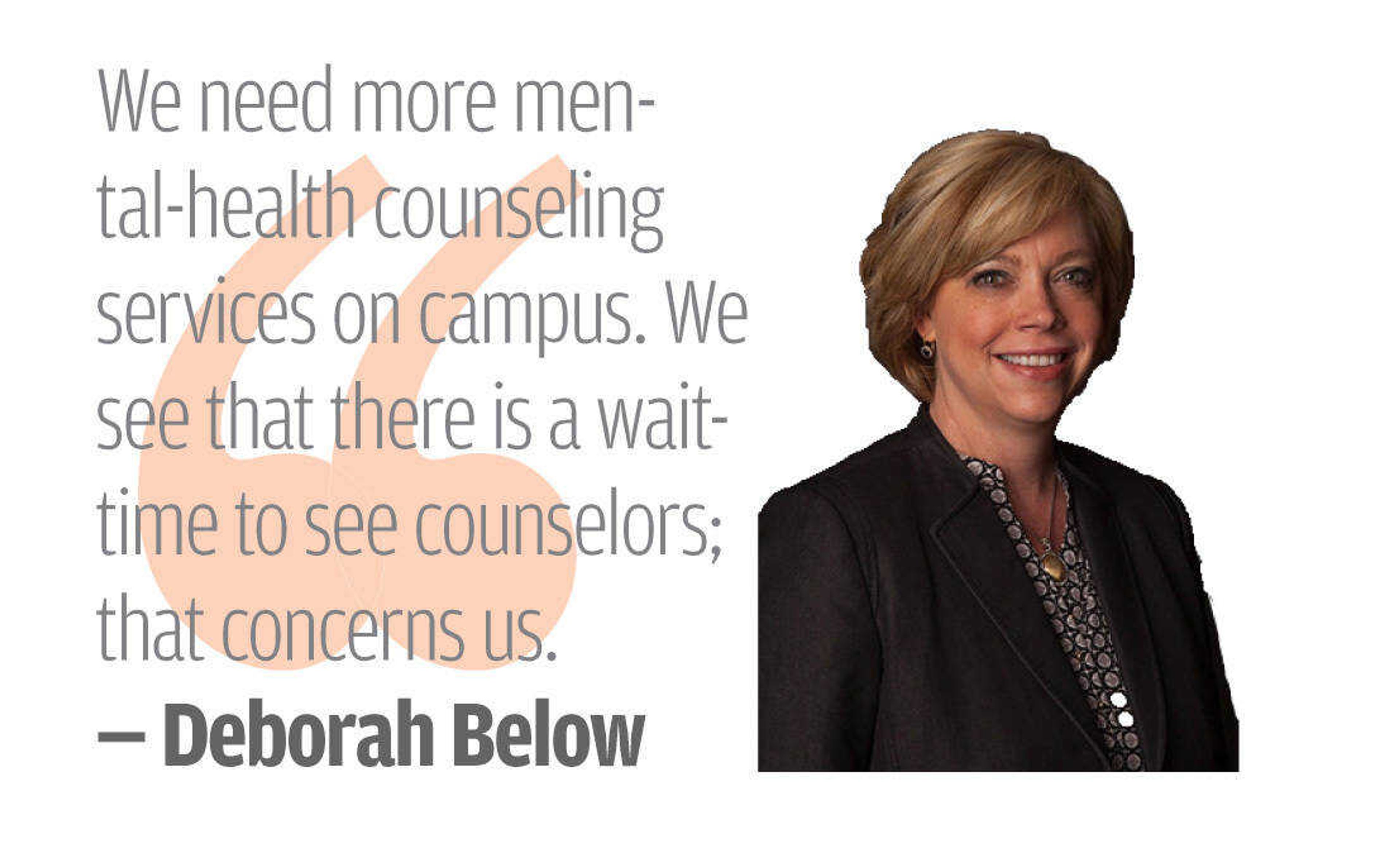Southeast strives for accessible learning environment
The Southeast faculty and staff continue to help current students who struggle with disabilities who live on campus. According to vice president for Enrollment Management and Student Success Deborah Below, Southeast does comply with the Americans with Disabilities Act — a federal law mandating public entities maintain a code of living for individuals with disabilities...
The Southeast faculty and staff continue to help current students who struggle with disabilities who live on campus.
According to vice president for Enrollment Management and Student Success Deborah Below, Southeast does comply with the Americans with Disabilities Act — a federal law mandating public entities maintain a code of living for individuals with disabilities.
“A student, if they disclose a disability to us and they have documentation of that disability, there’s a minimum set of requirements that we need to adhere to,” Below said.
ADA-compliant housing
Assistant director of Disability Services Millicent Odhiambo said all residence halls on campus have at least two ADA-compliant rooms for students who have disabilities.
Odhiambo said the larger rooms allow more space to navigate with a wheelchair or equipment.
“Typically a student will request that, and Disability Services and Residence Life will coordinate that room to make sure that student has an accessible room,” Odhiambo said.
Below said the university has seen an increased number of students with a documented disability. Southeast has three staff members whose focus is to help students with disabilities.
Southeast has also added services for students with temporary disabilities.

If a student sustains an injury that prevents them from going to class for an extended amount of time, Southeast puts the family in touch with Odhiambo, who informs the faculty about the student’s injury and the fact they will help work with the student.
Office of Counseling and Disability Services
Southeast offers a joint Office of Counseling and Disability Services, that was previously two stand-alone offices in the University Center and now joined together in the B-Wing of Dearmont. Below said several years ago Southeast decided to join the two units because they could see an overlap in between the two services.
“It’s not that they always go hand-in-hand, but there tends to be overlapping,” Below said.
The Counseling and Disability Services office provides free and confidential counseling services for all Southeast students with documentation, Odhiambo said. Disability services, though, provides services for any student who identifies as someone with a disability.
“For disability services, you must register with our office to receive services,” Below said.
Counseling and Disability Services also offers a crisis team that helps students if an event happens after 5 p.m. or during the weekend.
“We have a crisis coordinator on call and it is coordinated with DPS,” Odhiambo said. “The person calls DPS, and DPS will be in contact with the crisis coordinator, and that person will respond in the event of an emergency.”
Below said staffers work to develop positive working relationships with students who have disabilities early in their transition to Southeast.
“We do offer something called a Transitions Academy,” Below said. “So the week before school begins, the students can move in early, get a tour of the campus without as many people around, spend time meeting people, like Dr. [Bruce] Skinner, myself and many others. Family members come as well so there is a little bit of an extended transition into the university.”
Companion animals
Sometimes students seek permission to bring animals on campus to provide emotional support, often when no disability has been documented.
Skinner said such accommodations are not required under ADA law, but they are required under the Fair Housing Act.
“It involves where you live, not where you work, play, eat, go to school,” Skinner said. “Which is why it comes into play in the residence halls.”
Skinner said sometimes mental health care providers opt not to prescribe medication and suggest students obtain an emotional-support animal instead. To bring an emotional-support animal to campus, students must first complete a form on the Residence Life website. From there, the Office of Counseling and Disabilities Services gets involved to check whether the animal is required for a reason recognized under the FHA. Staff also must ensure students making the request are able to care for the animal.
Planning for the future
Below said she has identified some of the needs Southeast must address in order to help students.
“The needs change over time,” Below said. “We have added services within Disabilities Services and we’ve added services within Counseling Services. We believe that we need more mental-health counseling services on campus. We see that there is a wait time to see counselors; that concerns us.”
Below said adding services it is a matter of finding the financial resources to hire additional staff amid budget cuts at Southeast.
“We have to figure out how to interest all of our students in participating in more education, and we need more peer support,” Below said.
If a student feels the need to be in contact with a crisis coordinator, call DPS at (573) 651-2911.






